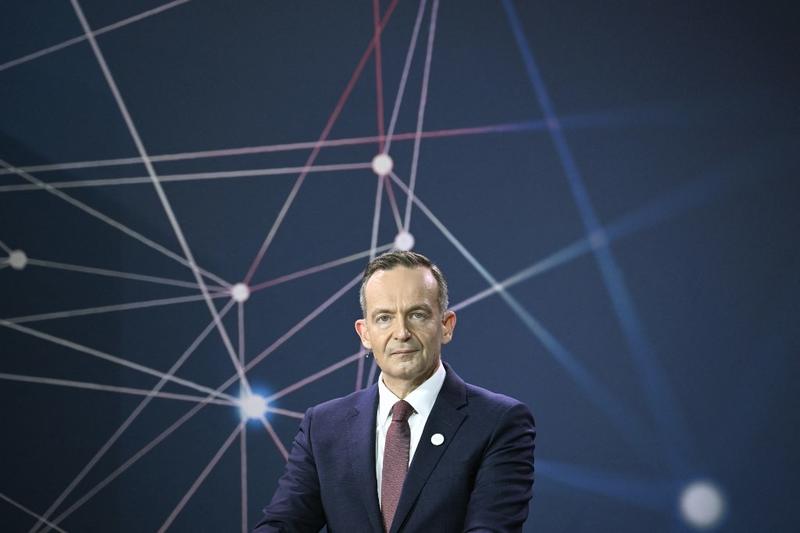 German Minister for Transport and Digital Affairs Volker Wissing holds a joint press conference with German Minister of Economics and Climate Protection and the President of Germany's Bitcom digital association (not in photograph) during the Digital Summit of the German government on Dec 9, 2022 in Berlin. (PHOTO / AFP)
German Minister for Transport and Digital Affairs Volker Wissing holds a joint press conference with German Minister of Economics and Climate Protection and the President of Germany's Bitcom digital association (not in photograph) during the Digital Summit of the German government on Dec 9, 2022 in Berlin. (PHOTO / AFP)
BERLIN - Germany's Transport Minister Volker Wissing has expressed reservations regarding a planned ban on new cars with internal combustion engines in the European Union from 2035.
A member of the Free Democratic Party, Wissing is calling for an exception for internal combustion vehicles fuelled by e-fuels, namely synthetic fuels produced with green electricity. Otherwise, Germany will not support the legislation in the upcoming votes.
Against the background of the enormous existing fleet of passenger cars that we have in Germany alone, for the FDP there can only be a compromise on fleet limits if the use of e-fuels is also made possible.
Volker Wissing, Germany's transport minister
"Against the background of the enormous existing fleet of passenger cars that we have in Germany alone, for the FDP there can only be a compromise on fleet limits if the use of e-fuels is also made possible," Wissing told the German newspaper Bild on Tuesday.
E-fuels, like e-methane, e-kerosene and e-methanol, are all fuels in gas or liquid form that are produced from renewable (solar or wind power, for example) or decarbonized electricity. This raw material differentiates them from biofuels, which are primarily produced from biomass.
ALSO READ: Germany's oldest companies face fresh break-up calls
In mid-February, the European Parliament approved the new CO2 emissions reduction targets for new passenger cars and light commercial vehicles. Under the new legislation, new passenger cars are to become emission-free by 2035 as the EU is seeking to become climate neutral by 2050.
The law is still subject to the approval of EU member states.
Germany's largest carmaker Volkswagen plans to only produce electric cars in Europe from 2033. As of 2030, at least 70 percent of the company's sales in Europe are to be purely electric cars. In the United States and China, Volkswagen is aiming for more than 50 percent.
READ MORE: Berlin chooses change in election with clear lead for conservatives
After record sales at the end of last year, there were over one million purely battery-electric passenger cars registered in the Europe's largest economy, according to the German Institute for Economic Research (DIW Berlin). The government target for 2030 is 15 million in Germany.



